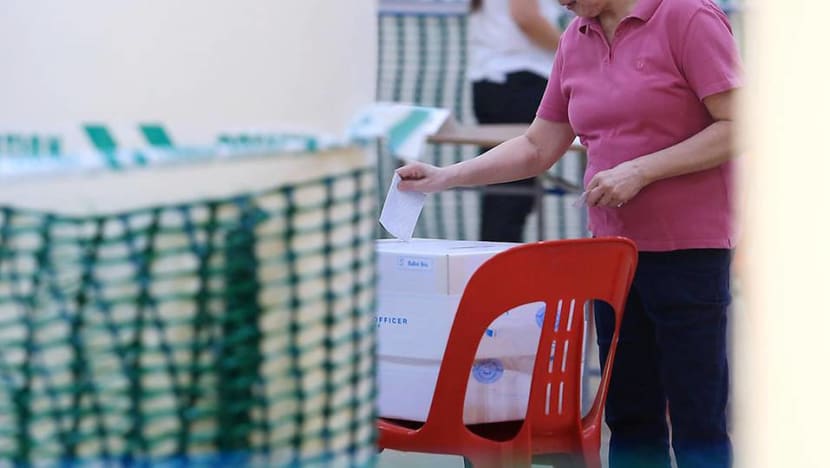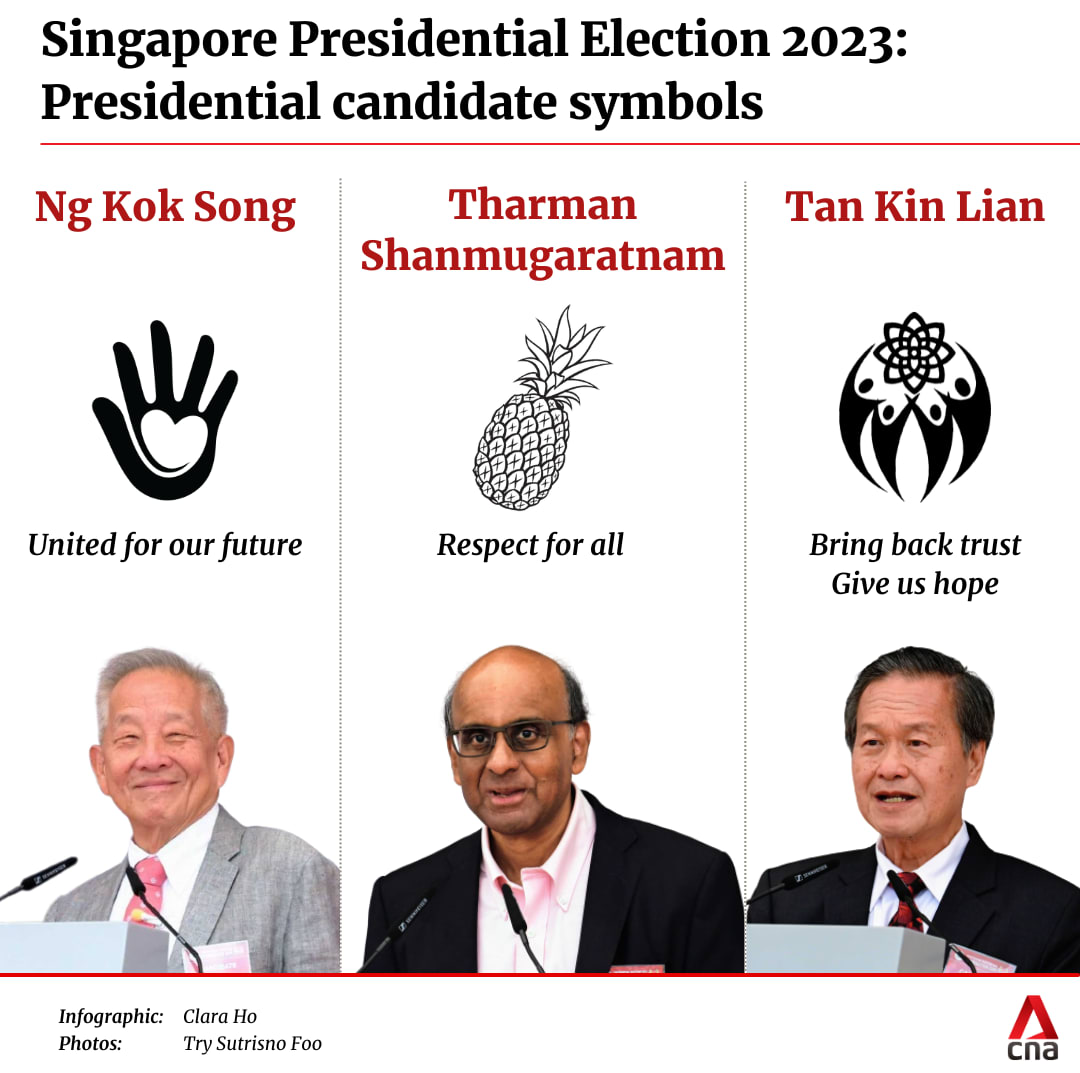Cooling-off Day: What presidential candidates can or cannot do

File photo of a voting booth in Singapore. (Photo: TODAY)
SINGAPORE: All campaigning for Singapore's Presidential Election must stop by Cooling-off Day on Thursday (Aug 31) to give voters time to reflect on their choice for President.
About 2.7 million Singaporeans will go to the ballot box on Friday to vote for Singapore's ninth President.
The period from midnight on Thursday to the close of polling at 8pm on Friday is called the cooling-off period. During this time, campaigning activity and new election advertising are not allowed, said the Elections Department (ELD).
The candidates – former GIC chief investment officer Ng Kok Song, former Senior Minister Tharman Shanmugaratnam and former NTUC Income chief executive Tan Kin Lian – have been officially campaigning since Nomination Day on Aug 22.
What is prohibited and what is allowed during the cooling-off period?
WHAT IS PROHIBITED
Campaigning activity and new election advertising are not allowed during the cooling-off period. This includes the publishing, displaying or wearing of clothing with a candidate’s symbols.
Election advertising refers to any information that can "reasonably be regarded as intended to promote, procure or prejudice the electoral success of a candidate or to otherwise enhance or prejudice the standing of a candidate", ELD said on Wednesday.
Candidates and their teams cannot publish any online election advertising during this period. This includes sharing, resharing, reposting or boosting existing online advertising as well as broadcasting online meetings that are open to the public.
They are also not allowed to relocate or alter any existing physical advertising, such as banners, flags or posters.
ELD said that candidates should not canvass support, conduct walkabouts, door-to-door visits, or visit the workplaces of voters for election-related purposes.
They cannot hold any form of public assembly or meeting – whether online, in person, or both – that engage in election issues, ELD said.
During the cooling-off period, people should also not wear, use, carry or display a candidate's symbol or campaign propaganda.

ELD said that candidates and their supporters are expected to comply with all relevant laws during the cooling-off period and should "refrain from conduct that goes against the spirit of the cooling-off period".
"Candidates should be mindful of how they conduct themselves in public and exercise due care to avoid any action that may be perceived as campaigning," ELD said.
On Polling Day, voters may be turned away by election officials at polling stations if they wear clothes or carry items that may be "construed as influencing other voters" or canvassing support for a candidate.
These items include shirts, clothing, bags or badges with prints on them that are identical or closely resemble a candidate's symbol. The items should also not bear words that may be interpreted as showing support for a candidate.
ELD reiterated that the publication of election surveys and exit polls before the close of polling is prohibited.
WHAT IS ALLOWED
There are some exceptions to the prohibition of election advertising during the cooling-off period.
Online election advertising published before Thursday that has not been shared, reshared, reposted or boosted during the cooling-off period is allowed.
Physical advertising, such as posters, banners or flags, displayed before Thursday can also continue to stay up as long as they are not relocated or altered during the cooling-off period.
The public display of any physical election advertising within or on an exterior wall or window of the office of a candidate is allowed. It should consist only of permissible electoral content and is used "solely for the purpose of indicating that the office or room" is for the candidate.
A candidate is also allowed to wear a replica of the symbol allotted to him.
ELD also said that candidates may continue to attend religious ceremonies or worship services, meetings, or other functions in the course of their work or employment, subject to the general prohibitions against campaigning and election advertising during the cooling-off period.
News reports relating to election matters by authorised news agencies can also be published or broadcast.













